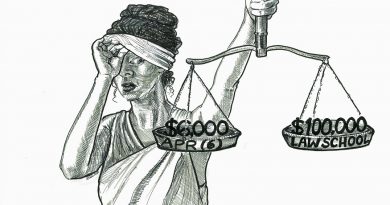The Hidden Power of #BlackTwitter
Black Twitter is a cultural phenomenon on Twitter that has its own rules, etiquette, slang, and jokes that pertain to the interests of and provide comic relief for black youths online. Feminista Jones described it in Salon magazine as “a collective of active, primarily African-American Twitter users who have created a virtual community… [and are] proving adept at bringing about a wide range of sociopolitical changes.”
The power of Black Twitter is concealed in jokes, sharply worded rebukes, and steeped in allegory that can haunt a public image at best and at worst… destroy one. More importantly it brings attention to public figures when they do or say something racially insensitive or just plain stupid.
Justine Sacco, a former public relations executive for the media/Internet company IAC, discovered the prowess of BlackTwitter when she tweeted, “Going to Africa. Hope I don’t get AIDS. Just kidding. I’m white!”
Despite Justine having just 170 followers, #HasJustineLandedYet became a worldwide trend and the entire Internet waited for her plane to land so they could criticize her. Sacco was fired days later.
Anger unchecked isn’t a very persuasive tool; it’s too easy to brush off as childish and emotional. Besides, it gets old fast and doesn’t always lead to lasting change. But, when the truth finds a platform as viral as Twitter, it seems to stick.
According to a 2013 study by the Pew Research Center, African Americans use Twitter at higher rates than other ethnic groups. The same study found that 30% of Internet users on Twitter were between the ages of 18 and 29. Those large numbers mean that a community has evolved online to reflect one that has long existed offline. The difference is now it’s out in the open for anyone to observe.
Every ethnic group has its own way of spreading information that is of concern to them. For the black community, of which I am a part, there has always been the barber shop and the beauty shop. We talk about everything from local gossip and life events to minor infractions and major transgressions. I just got engaged. My cousin is looking for a job. A journalist or a major news outlet said something terribly offensive. An unarmed 17-year-old boy was killed in Florida for looking suspicious. Twitter has become the new barbershop. The Black Lives Matter movement began as a Twitter hashtag before it was this year’s ticket issue in the presidential race.
Feel free to snoop around and participate in the conversations, but do not expect to be spoon-fed explanations of critical race theory, intersectionality, or privilege. If you can find Black Twitter, you can Google the concepts you don’t understand. Most participants are unwilling to act as black social media guides.
But the black community doesn’t hide behind keyboards to make racy comments and gain attention. They don’t tweet for the sake of pontificating about black culture. They use the Internet for the same reason everyone else does—to be understood and connected. To be able to log into Twitter and find that hundreds of thousands of other people out there feel the same way you do can be a great relief.
The most significant aspect of Black Twitter is that it increases the visibility of black people online. This thwarts the idea that white is the benchmark and everything else is “minority” or “other.” It’s an impressive demand for acceptance by simply existing—or sometimes dominating—in a space and being yourself, without having to apologize or explain anything to anyone.
The term Black Twitter is kind of offensive and, at the end of the day, Black Twitter is just Twitter. Placing the “Black” qualifier in front propagates another form of segregation. Alternatively, blacktwitter.com was launched independently in the fall of 2015,to reflect #blacktwitter in images and articles. Offensive or not, BlackTwitter is providing a space for black youth to be heard and that in itself is a tribute to what so many people in the civil rights era fought for—freedom of expression. Happy#BlackHistoryMonth!




